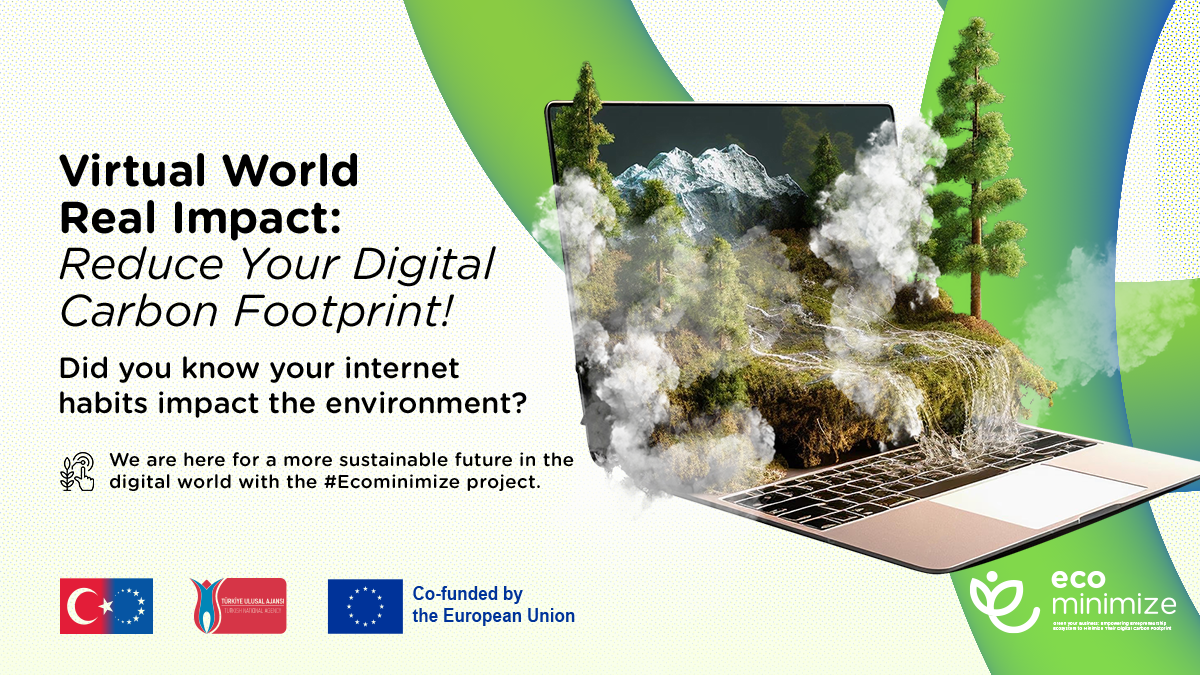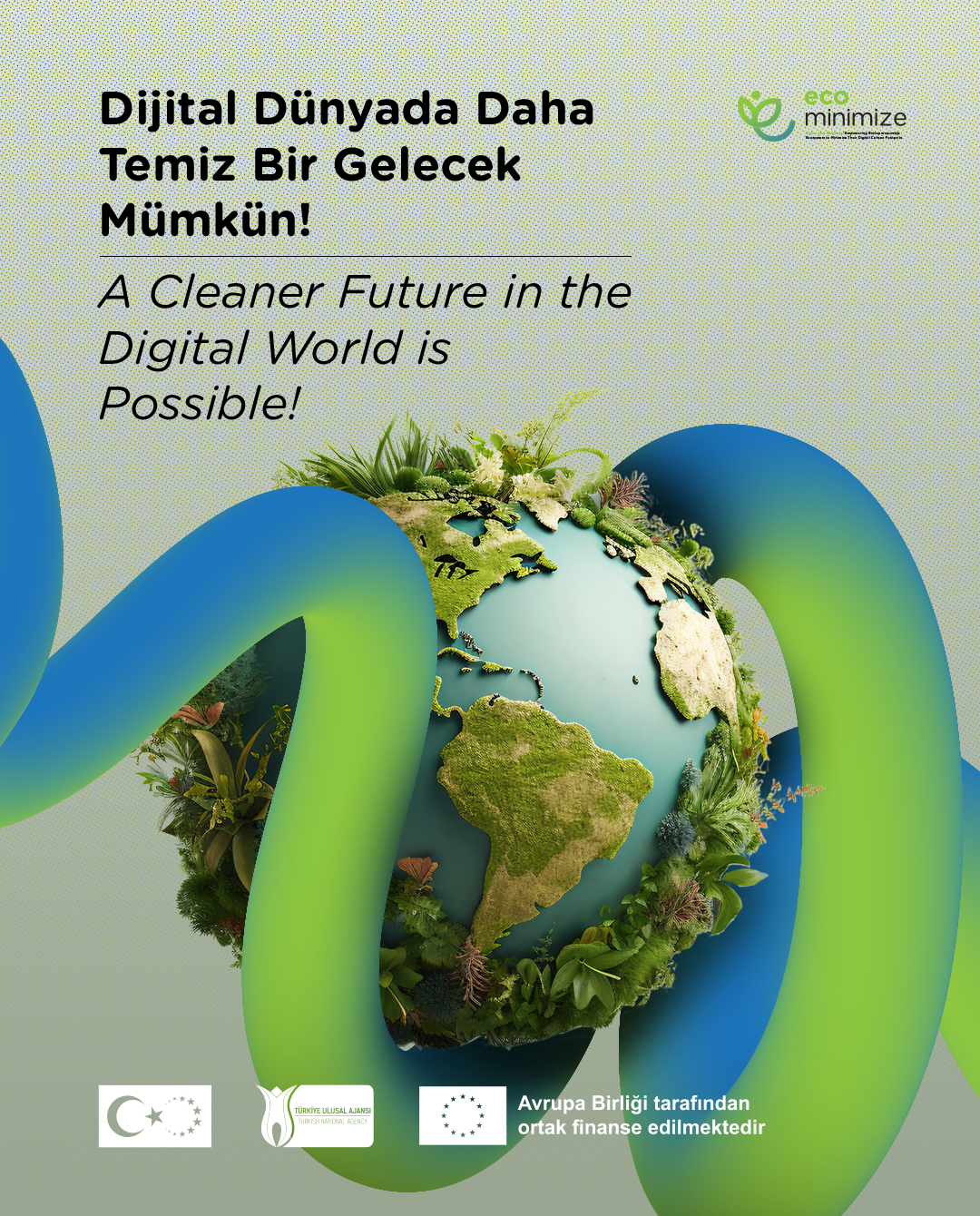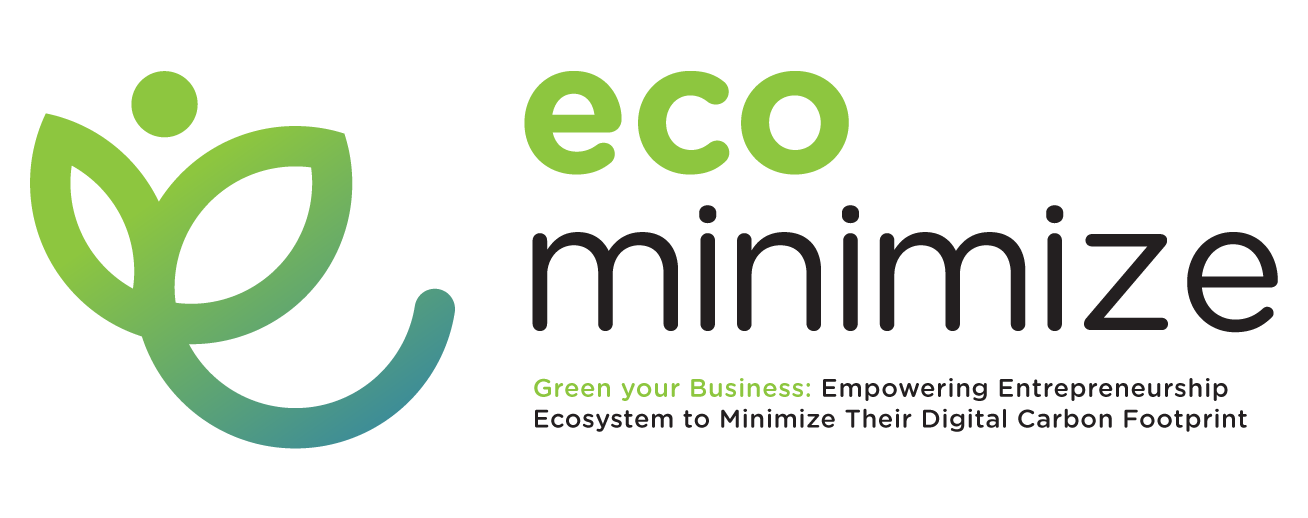

About the Project
Empowering the entrepreneurship ecosystem for sustainable digital transformation
About the Project
The ECOMINIMIZE project (Project Number: 2024-2-TR01-KA210-VET-000285434) is supported by the Turkish National Agency in the field of Vocational Education under the scope of Small-Scale Partnerships (KA210-VET).
Officially commencing its activities as of June 1, 2025, this initiative aims to raise awareness and enhance capacity within the entrepreneurship ecosystem to reduce their digital carbon footprint.
The project is implemented under the coordination of DEPARK and Dokuz Eylul University İzmir Vocational School, with an international partnership established with Hellenic Mediterranean University and BIZRUPT NGO from Greece.
With a total duration of one year, the project is scheduled to be completed in June 2026.
The Project Description
The project seeks to enhance sustainability in the entrepreneurial ecosystem by increasing knowledge of the environmental consequences of digital activities, including data storage, cloud computing, and digital marketing etc. Targeted workshops and educational activities will encourage entrepreneurs, especially startups and incubation companies, to acknowledge their digital carbon footprints and implement more responsible practices. The program underlines the significance of comprehending the ecological consequences of digital activities and seeks to motivate a transition towards more sustainable practices in the digital realm.
To facilitate this shift, the project will create and disseminate an extensive toolkit comprising pragmatic solutions, case studies, and self-instructional resources. These materials will assist entrepreneurs in executing sustainable digital practices, including website optimization, minimizing data consumption, utilizing eco-friendly hosting, and curtailing excessive digital advertising. The project aims to enhance digital resilience and promote environmental objectives through both online and in-person events, thereby supporting wider actions in climate action and digital transformation.
Countries
Turkey & Greece
Partners
Institutions
Months
Project Duration
Digital Focus
Carbon Reduction

- Raising awareness about digital carbon footprint in the entrepreneurship ecosystem.
- Conducting capacity building activities through international partnership.
- Developing training and toolkits for sustainable digital transformation.
Startups, incubators, developers, designers, product managers, and investors.
- Awareness and communication
- Training and workshops
- Toolkit and measurement
- Policy recommendations and dissemination

The impacts expected to be achieved within the scope of the project will be monitored through concrete and measurable indicators in terms of both environmental sustainability and digital efficiency. Indicators such as the number of participants in training processes, session feedback, and knowledge acquisition levels will be regularly reported.
In technical development phases, metrics such as the average page weight of optimized web pages, the reduction rate in data transfer amount, and the improvement percentage in loading times will be monitored; thus, both performance increase and carbon footprint reduction will be targeted.
At the end of the project, the knowledge and experience gained will be incorporated into institutional memory; a disseminable toolkit and good practice library will be created. This library will be designed as open access or shareable upon request so that other institutions and organizations can carry out similar studies; it will include step-by-step implementation guides, code examples, visual instructions, and case analyses.
Thus, the project will not only be effective within its own scope but will become part of sustainable digital transformation by creating impact on a large scale.
Phase 1: Project Launch
June 2025
Project initiation and partner coordination
Phase 2: Development
July - December 2025
Toolkit development and training materials
Phase 3: Implementation
January - May 2026
Workshops, training sessions and pilot testing
Phase 4: Completion
June 2026
Final evaluation and knowledge dissemination
